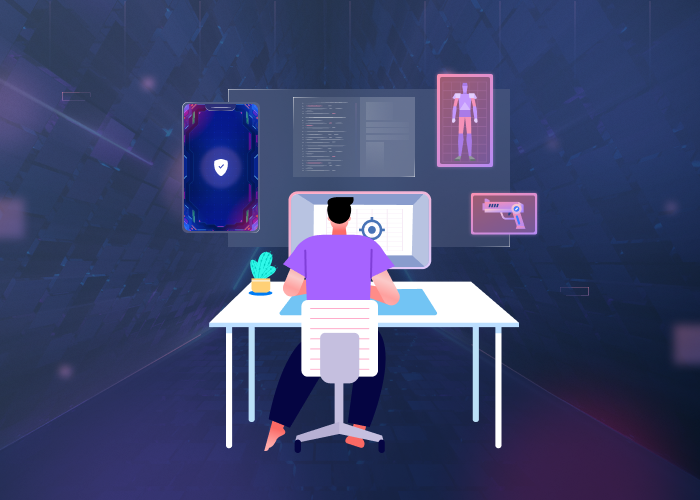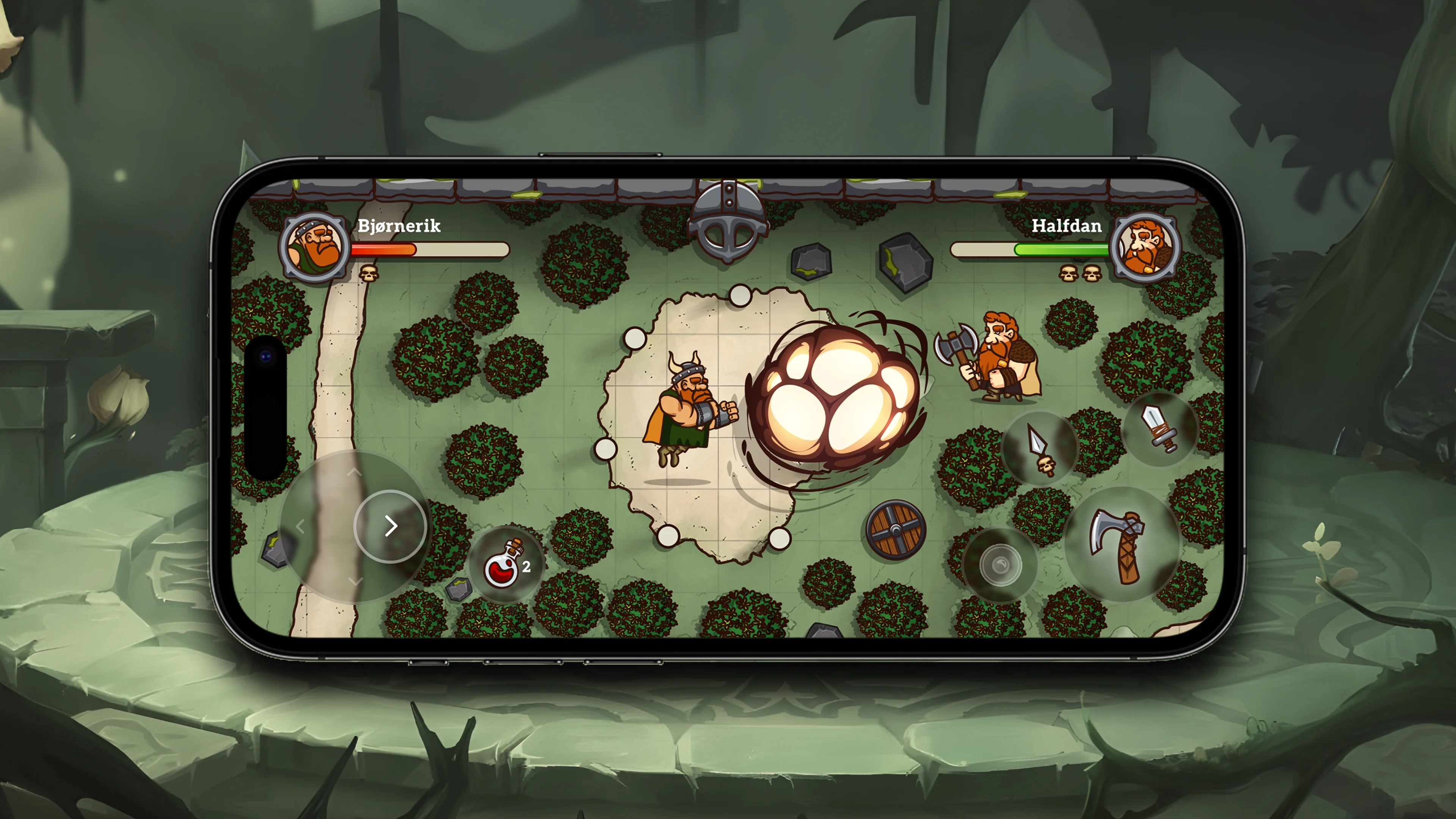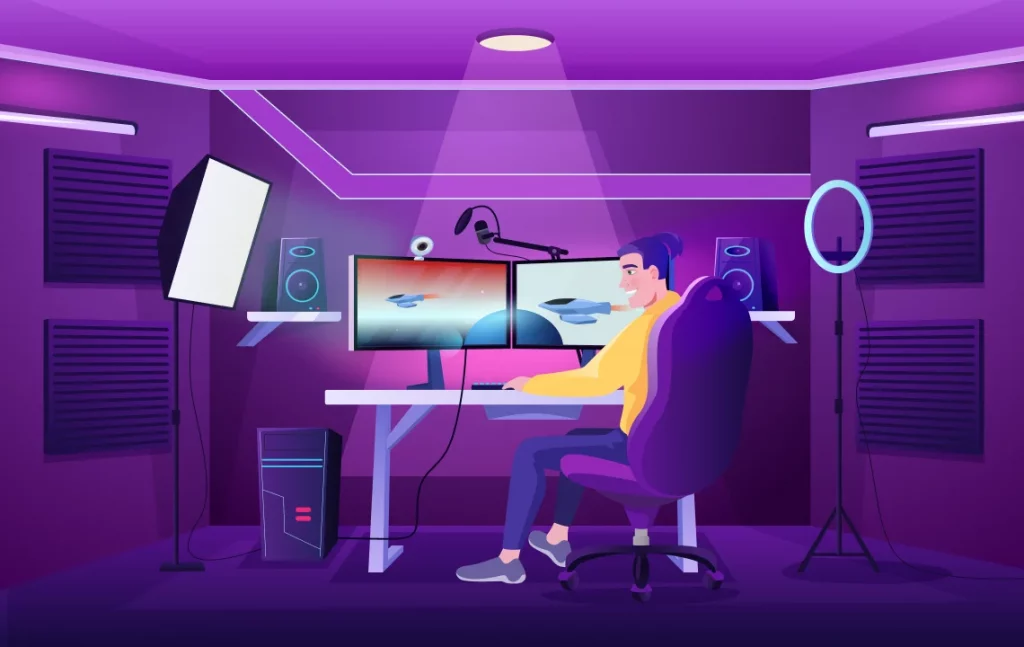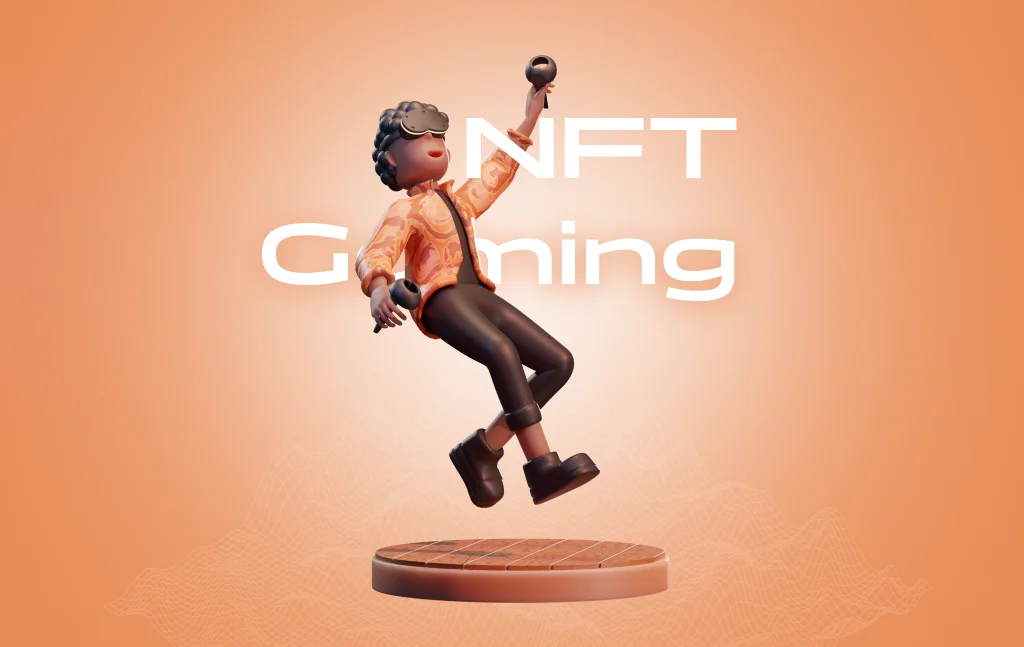Mobile Game Development Process – An In-depth Overview
- Gaming
- December 13, 2021
Mobile games are one of the fun activities that engage most smartphone users. The user of smartphones has increased dramatically, and according to Admob, 62% of smartphone users install games within the first week of buying their phone. Technological improvements have taken the mobile game trend to newer heights than traditional games.
And this has opened a lot of scopes for enterprises. Converting a game development concept into reality is complex. You must know the mobile game development process to build amazing games. It needs planning, designing, implementation, and distribution of the game on the targeted app store.
And with using exclusive tech tools, you must also know different steps to build a game. A successful game involves some pre-production, production, and post-production stages. We have divided these stages into steps to guide you through the mobile game development process. Let’s have a look!
Why Invest in Mobile Game Development?
We cannot deny that the mobile game market is highly lucrative, extensive, and diverse. And mobile gaming has emerged during the last few years. As per the latest Statista report, 3.24 billion people play mobile games worldwide. And we can expect this number to increase in upcoming years.
The COVID-19 pandemic had a massive effect on mobile gaming habits. According to GameAnalytics, a mobile game analytics tool provider, the number of mobile gamers skyrocketed by 46% during the first quarter of 2020.
According to recent report by Newzoo, the mobile game industry will develop at a compound yearly growth rate of 11% and expect to reach $116.4 billion in revenue by 2024.
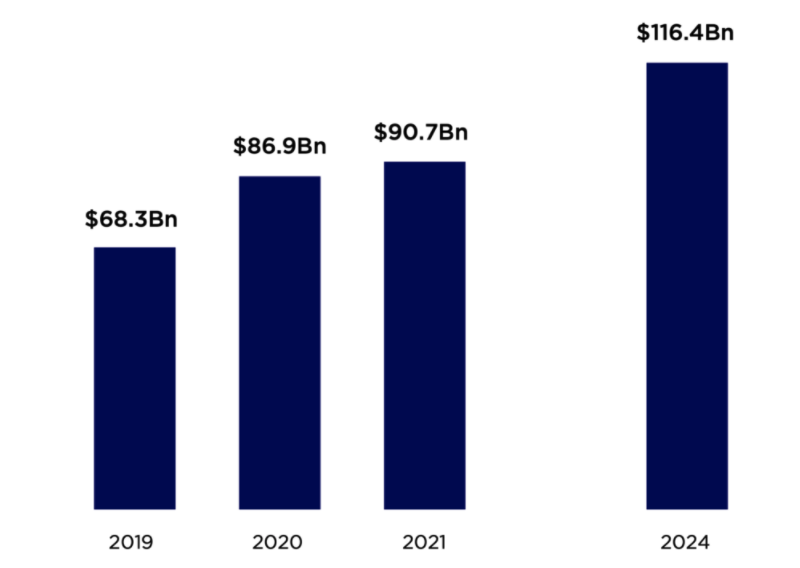
Henceforth, these statistical details prove that mobile games are a highly profit-worthy and money-making market for promising revenue. So, if you want to grow your business to the next level, you must invest in a mobile game app.
Steps to Develop a Mobile Game Successfully
Every day, thousands of apps are added to the app store and play store, but not all games have the same potential as Clash of Clans and PUBG. A successful game app follows a rock-solid idea, relevant monetization strategy and contains engaging and unique gameplay.
To make the mobile game development process easy, here’s the step-by-step guide on how to make a mobile game app:
1. A Superb Game Idea
A unique idea is the foundation of any mobile game. You don’t need a highly creative or innovative idea. You can start with a simple but out-of-the-box idea and transform it into a superb one.
Your idea can be brand-new, or you can also take inspiration from a successful game. It would help you find an exceptional way of giving a convenient experience to your customers. It is the game’s experience that has enticed millions of gamers around the world to return to the mobile gaming app.
2. Build an Engaging Story
Game stories play a pivotal role in the mobile game development process. To let your app users know about the features and purpose of your game, tell them the story that contains a complete description of stages, characters, and rewards.
The use of the concept is also essential in mobile game app development. Craft your story in a way that can attract your target audience and help you obtain benefits.
After all, it’s the story that makes people feel that what they’re watching is real and not a fiction, that makes them feel connected to the character, and that’s exactly what you need to achieve.
But, to develop games like puzzles, you don’t need to make stories as there is no need for unwanted story elements.
3. Make a Rock-Solid Game Plan
It is mandatory to create a game plan carefully for a game development project. It helps you convey and execute your ideas more effectively. A standard game plan includes:
- Graphics or art
- Marketing
- Gameplay or design
- The technical structure and development of the game
We recommend you consider an agile game development method so that you can work with all your strategic elements. Any changes made in an element of your plan can modify other elements also.
4. Decide an Estimated Game Development Cost
To decide an estimated budget for mobile game development, you need to consider some factors. These factors help make your game a market-ready product with a high ROI. Here are the most critical factors:
- Mobile Operating System
- Pre-development costs
- Post-development costs
Read also: Factors to Consider Determining Mobile Game Development Cost
5. Choose a Game Development Platform
What will be the platform to run your game app? There are around 73% Android-based smartphone users, and the number of iOS users is vast. Hence, this question relies on your budget.
If you select a single platform development, you can introduce your game to a limited market. But, if you want to increase the area of the reach of your app and have a reasonable budget, choose multi-platform development.
6. Select a Mobile Game Engine
The back-end of your game app is highly essential as this is where the game engine comes in handy. You have many engines to choose from for mobile gaming, and you can select one that can meet your gaming needs. For example, go for Unity 3D engine for empowering 3D games or choose Cry Engine to support the drag-and-drop feature in your game.
You can use back-end languages from various options like C#, C++, Node.js, Laravel, and Python for game development. Since this stage will decide your app’s infrastructure, consider the most relevant back-end technologies.
7. Create a Game Design Document
Once you draft the whole concept of your game, proceed towards the game design documentation. Developing the design document is necessary for designing a game.
This live and detailed document gives all the details about the game, including technologies, elements, design, experience, architecture, etc. The document records whatever you want to add to your app and ensures that the app follows a stick code for development and launching.
8. Design the Game Structure
An attractive game infrastructure helps you increase your sales. Users will play a game only if it contains unique and eye-catchy graphics and scenes. While designing the architecture, you must add elements like the environment, characters, objects, texture, etc.
The step decides the ultimate looks of your game. You can go for 2D or 3D designing to refine your game’s visuals. The step involves lots of coding and designing.
9. Make a Playable Prototype
It is necessary to build a playable prototype for a targeted gaming platform. The prototype must resemble the crucial parts of the game and incorporate all essential mechanics. Although building prototypes can be time-consuming, it is essential to figure out the game design errors.
Players can distinctly behave if the game controls are not spontaneous and some tasks are tough to complete. Hence, you can easily fix many issues during this stage.
10. Design and Develop Your Mobile Game
After the prototype has been approved, the actual game design work starts. Even the smallest things must now be completed with care. During this stage, you will make an experience that will transform the traditional gaming experience. Here, you will show your creativity to make your mobile game more engaging.
After figuring out everything, you should start building your mobile game. To create an exceptional app back-end, consider all the features, functionalities, technologies, experience, navigation, etc.
11. Mobile Game Testing
Before launching your game in the market, it needs QA testing. After all, the game will represent your business, and you must make sure to launch perfect and bug-free version. Hence, following this step is mandatory.
Professional developers test mobile games by introducing and playing the beta version on several devices. It shows different bugs the game may have, and hence, you can fix them and build the best version of your game. One can easily understand how to hire dedicated game developers and get started on the game development journey.
12. Select a Monetization Strategy
The game will be your source of income, and therefore, you should follow a monetization plan during this stage. To meet your revenue targets, you can go for in-app purchasing, monthly subscription model, sponsored ads, paid mobile games, premium versions, free-to-play games, real money games, etc.

Final Verdict
Converting your game idea into reality is a challenging task. You’ll have to put in a lot of effort and deal with a variety of challenges and detours along the way.
To use the next-level game development for your business and provide users with a rich user experience, you can hire an experienced mobile game development company that knows how to make a mobile game successfully and help you grow your business.
FAQs about Mobile Game Development
There are an array of mobile game genres to choose from, including action, arcade, puzzle, casino, card, racing, sports, and many more.
There are different types of tools and platforms used by mobile game developers to develop 2D and 3D mobile games like Unity, Unreal Engine, CryEngine, Godot, Cocos2D, etc.
Mobile games make money through a number of models like free with in-app purchases, freemium, advertising, subscription, making game premium, etc.
The cost to develop a mobile game depends on several factors like types of game, complexity of design, functionalities, game platforms, country of developers, etc. Contact us with your game development needs to get the approximate cost.
